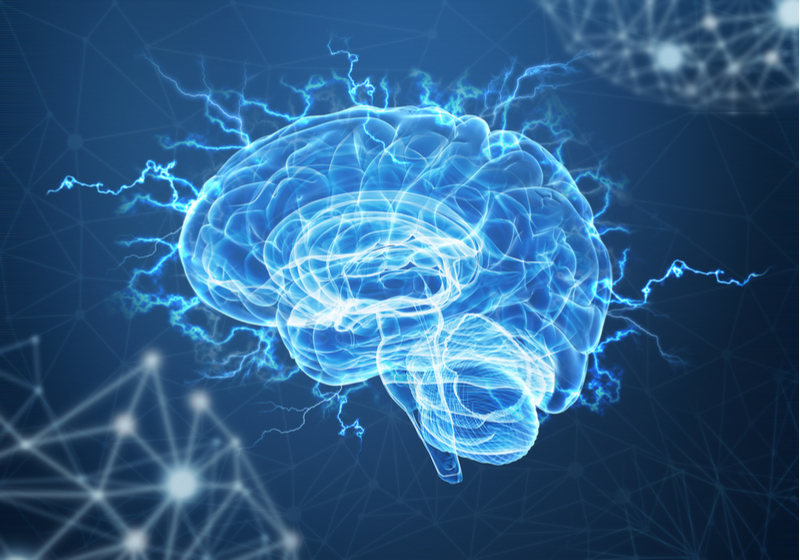Paris-based AB Science has scored a rare late-stage clinical triumph in the Alzheimer’s disease field with a drug that puts brakes on inflammation in the brain.
Last week, AB Science reported successful results from a phase IIb/III clinical trial testing its drug masitinib in patients with mild to moderate symptoms of Alzheimer’s.
Although the company hasn’t released the exact numbers, it has reported that “significantly fewer” of the patients treated with masitinib progressed to severe dementia compared to those given a placebo. They also scored higher on cognition and memory tests. The test subjects took the candidate in addition to standard Alzheimer’s disease medications.
Masitinib is a drug that inhibits tyrosine kinase proteins, which are involved in promoting inflammation. The candidate was originally developed as a cancer drug and has also succeeded in phase III trials to treat amyotrophic lateral sclerosis (ALS). However, over the last several years, the drug has been plagued with clinical trial halts and rejection from the EMA for ALS and cancer, in part because the clinical data wasn’t seen as reliable enough.
AB Science’s approach embodies a new wave of medical thinking about Alzheimer’s disease and neurodegenerative disorders in general. For years, the focus of Alzheimer’s research had been on the buildup of misfolded proteins in the brain, mostly amyloid-beta and tau, which are hypothesized to trigger degenerative processes in neurons. However, these approaches have so far produced a long string of disappointing failures in late-stage clinical trials, most recently of a tau antibody developed by AC Immune and Genentech.
Masitinib targets both amyloid-beta and tau by inhibiting a protein called kinase Fyn, which is involved in processing both proteins. However, what interests scientists even more are its immunological effects and its potential to reduce neuroinflammation by inhibiting a type of immune cell called mast cells.
“The link between mast cell function and Alzheimer’s disease hasn’t been much investigated,” said Virginie Buggia-Prevot, Director of Neurology Discovery for the US drug discovery technology company Valo Health, who wasn’t involved in AB Science’s trial. She cautioned that it may be a little early to call the topline results a breakthrough, and said more data from the clinical trial would be welcome.

In recent years, several studies have suggested a link between mast cell activation and mental health conditions such as cognitive dysfunction and depression. Buggia-Prevot pointed out a recent ‘paradigm shift’ in Alzheimer’s research toward inflammation and brain immune function.
“One of the main reasons for this shift is the discovery of new genetic risk factors in the past 10 years,” she told me. “Many of those newly discovered genes are expressed in the immune system, especially the brain immune cells: the microglia. In the brain of patients suffering from Alzheimer’s, there is a lot of inflammation as the microglia are overwhelmed by trying to get rid of all the misfolded proteins that are accumulating: amyloid and tau. They release toxic factors compromising the function of the brain cells responsible for storing memories: the neurons.”
Several other companies working on Alzheimer’s therapies that modulate neuroinflammation have reported promising early results. That is the case of the German biotech Vivoryon Therapeutics, which currently has its lead Alzheimer’s candidate, varoglutamstat, in a phase IIb clinical trial. However, last week the US firm vTv Therapeutics revealed that its drug candidate, which blocks an inflammatory protein called RAGE, actually made Alzheimer’s disease worse in phase II.
“I’m looking forward to seeing how strategies targeting microglia … will perform in the clinic in the next few years,” said Buggia-Prevot. “I believe it will be all about having several drugs targeting different mechanisms regulating inflammation in our toolbox to have the right approach for each patient.”
AB Science’s focus on patients with mild symptoms addresses a common criticism of Alzheimer’s candidates and clinical trials—experts believe that many of them fail because they target the disease process too late, when the neurological damage may already be irreversible. During a conference call last week, AB Science representatives said they will continue the focus on early-stage Alzheimer’s patients during the phase III clinical trials needed to gain approval.
“The strongest predictor of a successful phase III [trial] is a successful phase II [trial],” said Jeffrey Cummings, Director of the Chamber-Grundy Center for Transformative Neuroscience at UNLV in Las Vegas, who was involved in organizing AB Science’s phase II/III trial. “So we would try to stay very close to the parameters of the phase II trial in the phase III trial.”
Detecting early cases of Alzheimer’s is very difficult because there is a lack of predictive biomarkers that are simple to measure; in fact, a diagnosis can only be confirmed post-mortem. However, there are currently many efforts ongoing to develop better Alzheimer’s tests, such as by scanning the blood.
AB Science hinted in the conference call that it will use newer diagnostics technology in its phase III that wasn’t around during the phase IIb/III trial. While the technology wasn’t disclosed, it might help the company to identify early-stage Alzheimer’s patients for inclusion in the trial.
With only five therapies approved and none able to fully reverse disease progress, Alzheimer’s currently counts as an area of unmet medical need. Experts hope, not for long.
“The future of Alzheimer’s therapeutics is looking brighter than people might think,” Buggia-Prevot added.
Cover image from Elena Resko and text image from Shutterstock





